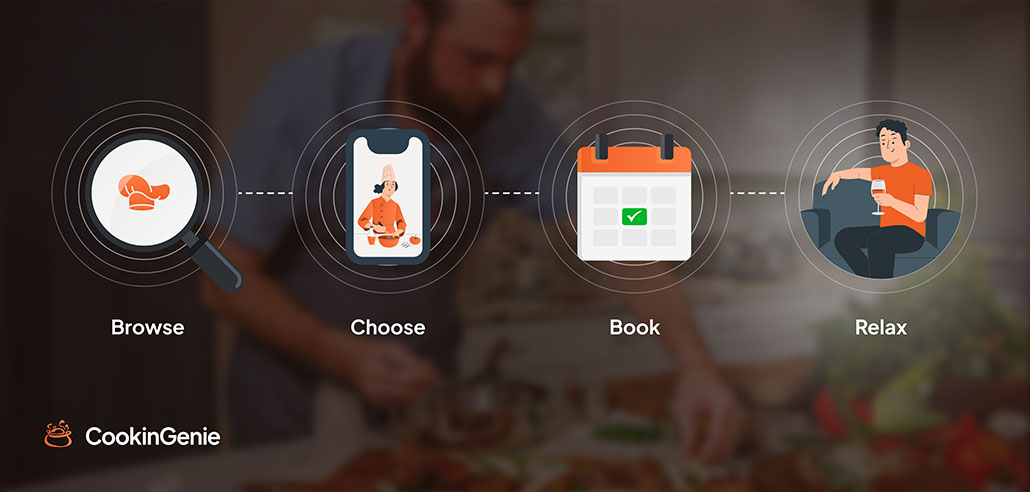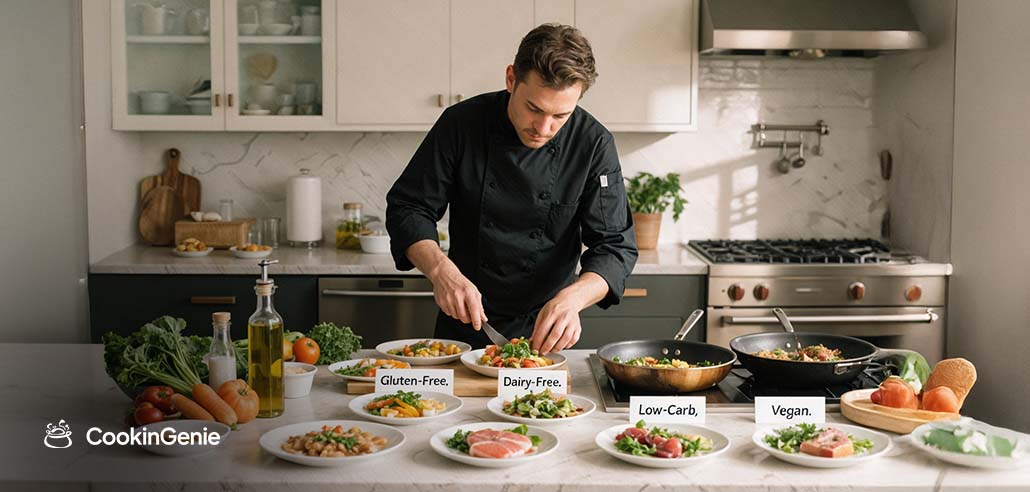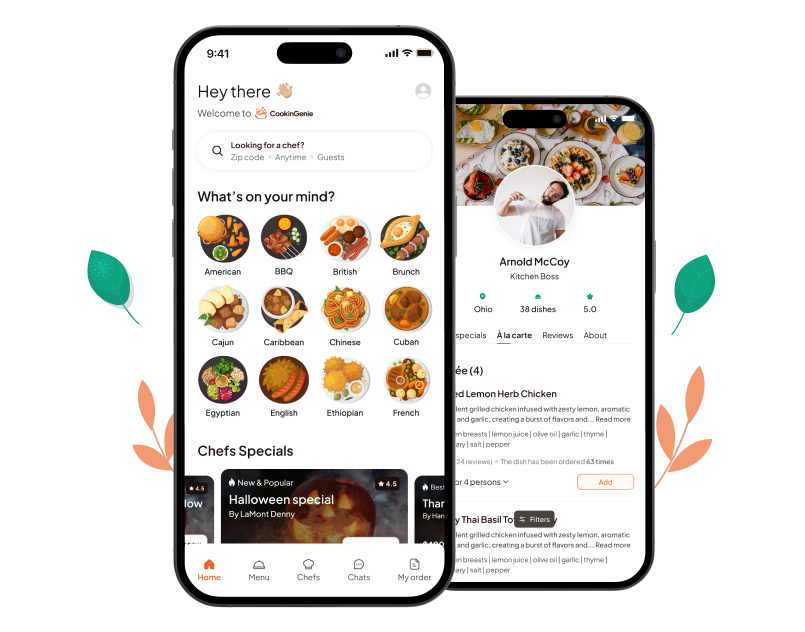Take Control of Your Eating Habits: Tips for Preventing Overeating
Many of us know how it feels to overindulge in food now and then, but sometimes it can go too far and become a real problem. Overeating can be a difficult habit to break – sometimes, it just feels like we have no control. This blog post will provide tips on taking back control of your eating habits, so you don’t over-indulge. With these tips, you’ll be able to understand the causes of your binge eating and learn strategies for avoiding it in the future. Arm yourself with the knowledge and confidence that comes from understanding how your behavior impacts your eating habits, so you can make decisions that work for you.
Causes of Overeating
Overeating is a growing concern in many countries worldwide, as it can lead to unhealthy weight gain and related health risks. There are several causes of overeating to consider when making lifestyle changes. These can include emotional stress, boredom, lack of activity, genetics, unbalanced diet choices, and a lack of sleep.
- Emotional stress can lead to extra food to fill the emotional void.
- Boredom and lack of activity can create an environment where overexertion of food is easy if you have nothing to do with your time.
- Genetics can affect how quickly you may become full and how much physiological craving you have for certain foods.
- Unbalanced diet choices with too much-processed food or carbohydrates can also add to weight gain due to large caloric counts per serving size.
- Lack of sleep or quality sleep can affect hormones, leading people to binge on unhealthy snacks more often than necessary.
Dangers of Overeating
Ove-indulging in food is a serious issue that can lead to many health complications. Obesity, caused by consuming more calories than the body needs, is a potential threat to overeating. Excessive calorie intake may also increase cholesterol levels and cause heart diseases. Overeating saturated fat can prompt one’s body to produce and store unnecessary amounts of fat, which increases the risk of stroke or coronary artery disease. Furthermore, overeating can lead to diabetes due to altered metabolism caused by excessive lipid and carbohydrate intake. Other physical concerns associated with overeating are:
- Joint pain
- Fatigue from lack of energy expenditure
- Breathlessness from the increased pressure on the lungs.
- Mental health issues such as eating disorders and anxiety.
All these concerns result from a hazardous lifestyle associated with an unhealthy diet due to overeating food.
Tips for Preventing Overeating
The key to preventing overeating is self-awareness and taking preventative steps. Some of the essential strategies for avoiding overeating are:
Eat Regular Meals: Eating regular meals is essential to prevent overeating. Eating consistently throughout the day can help maintain energy levels and better regulate hunger and fullness cues. This routine helps ensure that the portions can remain healthier during mealtimes. Additionally, eating regular meals prevents spikes in blood sugar which can lead to binge eating or craving unhealthy snacks later in the day. While it may seem difficult initially, establishing a meal schedule and being mindful of portion size can help reduce potential cravings while providing adequate nutrition.
Avoid Processed Foods: Many people turn to processed foods to satisfy their cravings, not realizing they are over-indulging more likely. As many processed foods contain elevated sugar, salt, and unhealthy fats, they hijack the body’s natural hunger cues. Once these cravings are activated, it can be challenging to stop eating until you consume all the food, even if the body has had more than enough calories.
A better approach is to get nourishment from whole foods such as fruits, vegetables, legumes, nuts, and fish; these foods include protein and other nutrients that can provide a feeling of satiety without taxing the body beyond its limits. Not only will this make it easier to control your portion sizes, but it’s also great for overall health.
Find Healthy Ways to Manage Stress: Nobody is immune to stress, and while it may seem like an effective way to cope, when used too often, it can lead to serious health problems such as gluttony. Thankfully, there are healthy ways to manage the stress that can prevent this from happening.
One of the most effective ways to relax and reduce stress is by engaging in regular physical activity. Exercise releases endorphins in the body, which act as a natural mood booster, and can help an individual manage stress better while avoiding overindulgence in comfort foods. Other activities include mindfulness, meditation, and journaling. Both work by helping you recognize your thoughts and emotions without paying attention or judgment – allowing you to understand better why you might feel extra anxious or stressed in certain situations.
When used correctly, these methods have proven phenomenally successful in managing stress that could lead to overeating.
Get Enough Sleep: Everyone knows how important it is to get a good night’s sleep, but not all people realize that it is essential to prevent overeating. Studies have shown that lack of adequate rest can affect hormones responsible for regulating hunger and satiety and increase cravings for unhealthy comfort foods. Getting enough sleep helps keep these hormones level but also helps give the body more energy to engage in physical activity, further assisting with controlling overeating. You should aim for 7 to 9 hours of sleep each night to establish healthy eating habits and prevent unwanted caloric consumption.
Eat Mindfully and Slowly: Eating slowly and mindfully is an effective strategy for preventing overeating. Taking the time to savor each bite of food makes it easier to recognize when you are full and not feel obligated to finish your plate. Eating slowly also increases the production of satiety hormones that tell your brain you have had enough.
Intensely focusing on your eating habits, including chewing slowly and gradually pausing between bites, can be therapeutic and enjoyable. Eating mindfully also includes paying close attention to hunger cues before eating; this allows us to eat only when truly hungry and avoid emotional eating that can lead to overeating. Overall, making a conscious effort to slow down while eating can be an efficient way of preventing overeating.
Avoid Skipping Meals: If you skip meals frequently, it can be challenging to refuel healthily and make nutritious choices. If you are too hungry when you try to eat, it’s easy to overindulge and consume more calories than recommended. Eating regularly throughout the day is ideal for maintaining consistent energy levels and avoiding overeating. Additionally, planned meals will help ensure you get enough of the essential nutrients your body needs. Scheduling mealtimes will help establish healthy habits leading to better overall health and dietary choices.
Exercise Regularly: Regularly exercising is a wonderful way to help prevent overeating. Not only can exercising lead to an overall healthier lifestyle, but it can also help us make better decisions during mealtimes. Regular workouts –
- Encourage you to eat more sensible portions and help keep your bodies energized and fit.
- Increase your motivation to be more active in your daily lives, leading to healthier habits such as avoiding indulging in unhealthy snacks or having too much sugar throughout the day.
Stay Hydrated: Staying hydrated is one of the most important things you can do for yourself, and it doesn’t always involve drinking water. Eating hydrating foods like cucumbers and celery or drinking beverages like watermelon juice or coconut water can be just as beneficial. Keeping yourself hydrated has positive implications for preventing overeating, too. Proper hydration keeps us full longer and reduces cravings, but it also helps support optimal digestion and nutrient absorption – vital elements in managing weight gain. Getting enough fluids into your body ensures that you get essential nutrients that are important to your health and help us stay on track with weight loss goals.
Avoid Smoking and Drinking Alcohol: Overeating can be a significant problem, and avoiding triggers such as smoking and limiting alcohol intake can help to prevent it. While smoking is an unhealthy habit, studies also show a direct correlation between smoking and obesity due to the increased urge to snack while smoking. In addition, avoiding alcoholic beverages can help since it increases appetite and leads to impulsive eating decisions. Healthy lifestyle habits such as eating nutritious meals regularly and staying hydrated are great ways to prevent overeating. Taking small steps each day towards limiting or eliminating the consumption of foods that trigger overeating can go a long way in developing a healthier life balance.
Limit Sugar Intake: Consuming too much sugar often leads to overeating and can significantly impact health. Reducing sugar intake is essential to preventing overeating and maintaining a healthy diet. Too much sugar in the diet can lead to insulin resistance, which causes cravings for even more sugary foods that quickly contribute to weight gain.
It’s, therefore, far better for your bodies and health goals to opt for less sugary alternatives like fresh fruits or raw vegetables rather than processed snacks and sweets. Taking measures like reading labels before shopping, decreasing sweet beverage consumption, and avoiding added sugars found in processed foods are all concrete steps towards eating less sugar and achieving healthier habits.
Conclusion
To conclude, if you are looking for ways to prevent over-indulgence in food, the key is to have a healthy and balanced lifestyle overall. Take time to evaluate portion sizes, choose foods with lots of fiber, avoid stressful situations as much as possible, and remember to listen to your body’s hunger and fullness cues. Minor changes in day-to-day eating habits can gradually lead to long-term success in preventing overeating and establishing healthier lifestyle habits overall. With these tips, there are plenty of helpful strategies everyone can use to stay on track and keep their bodies healthy.



 Settings
Settings
 Gift Card
Gift Card Blog
Blog Locate Us
Locate Us










 Home
Home
 Chefs
Chefs
 Chats
Chats
 My Order
My Order



